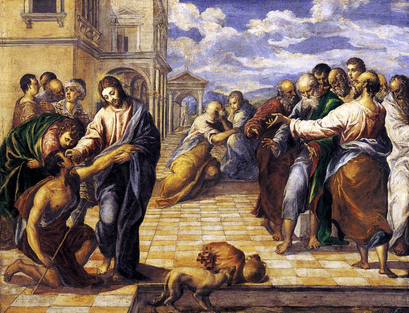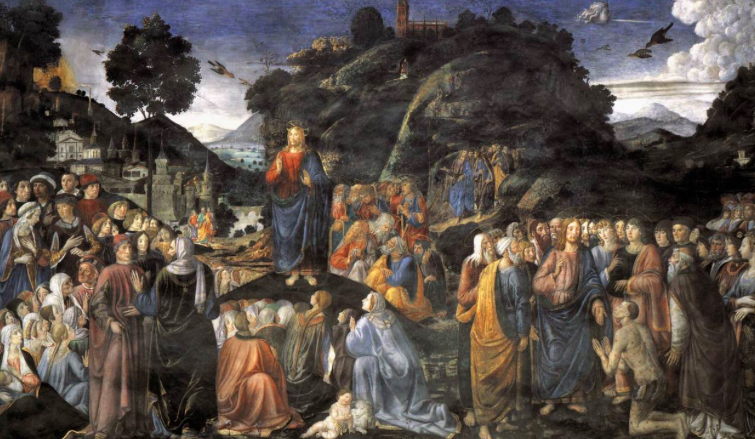 The unpardonable sin? What is this? Have I committed it? If you have, the ball game is over, done, finished. You can never ever be pardoned. Ever. According to both the Matthew 12 and Mark 3 unpardonable sin texts. And, this pastoral nonsense, that is, "well, if you are concerned about it, then you haven't committed blasphemy of the Spirit" is not in these texts as a way around it. Yet, pastors and lay-people/teachers use this "counsel" all the time. It seems the default pastoral answer. (How do pastors know this, anyway?) But, whatever it is, it is serious stuff. So, I believe the better question is, how should we read this "blasphemy of the Spirit" text in Matthew 12? And, what does it mean to the church that reads (in Matthew's Gospel) this rebuttal and warning from Jesus to the accusing temple leadership? This “sin” from Matthew 12 (cf. Mark 3) have been misappropriated so much that it fits the adage, if you keep telling a lie over and over again eventually everyone just thinks it to be true. Although, preachers and teachers might certainly not be lying, they have, however read back into these texts what has “always” been clear since it seems true and has been repeated over and over (so they repeat). Let us, however, look at the logic (the simple grammar and the context) happening in the Matthew 12 “blasphemy against the Holy Spirit” text. The unpardonable sin referenced here has to be related to the previous verse (the one that heads the paragraph, verse 30), for the warning of such blasphemy against the Spirit begins with a “therefore” (v. 31; Διὰ τοῦτο/dia touto, literally “on account of this,” “because of this”). So, the reader must ask, “therefore what?” or “on account of what?” Well, verse 30 is the answer:“He who is not with Me is against Me; and he who does not gather with Me scatters.” So, the “sin and blasphemy” is related to the one who “is not with” Jesus, but is “against” Him. And still, the “is not” and “against” is very specific—it is not a general “anyone who isn’t a Christian” or “any who reject Jesus” (which neither are in the text—yet, we continue to back this understanding in to the text). No. The one who “blasphemies against the Spirit” is the one who scatters and does not gather (based on verse 30). This is a leadership sin, a leadership blasphemy. At least here in this text. It is a rebellion right at the top. For, the terms “gather” and “scatter” are shepherding terms, which are very appropriate to the context Matthew gives to this narrative. Earlier, Jesus is looking upon the marginalized, oppressed, the poor, the bottom demographics and says, “Seeing the people, He felt compassion for them, because they were distressed and dispirited like sheep without a shepherd” (Matthew 9:36). This is what is clear from the text. Blasphemy against the Holy Spirit is related to the absence of shepherds that care/guard/protect the sheep, that is, sheep who are among the “distressed and dispirited” (FYI, this is the meaning of “poor in spirit,” but that for another time). The no shepherd/scattered-lost sheep portrait is pulled from Ezekiel’s prophecy and warnings (how about that, a warning!), and, specifically, Ezekiel 34:5: “So they were scattered, because there was no shepherd . . . My sheep were scattered.” Also, interestingly, Ezekiel portrays the restoration of God’s people and their return to covenant faithfulness as facilitated by the . . . wait for it . . . the Spirit (Ezekiel 36-39); thus, further linking our “blasphemy against the Holy Spirit” in Matthew to Ezekiel’s prophecies and warnings. Thus, we need a reading of this text with the no shepherd/scattered sheep framing in the narrative. Finally, it is important to note that Matthew has already set this all up in narrative. How do people know that Jesus is the promised Messiah: What do they hear and see? blind receive sight lame walk lepers are cleansed deaf hear dead are raised up poor have the gospel preached to them (Matthew 11:4-6). No doubt this is Matthew’s version of Luke’s draw on Isaiah 61, which promises that God’s Spirit (how about that, the Spirit again) would be on the Messiah to preach the gospel to the poor, to heal, free, and bring justice (Isaiah 61:1). This is the context in Matthew. This is exactly what Jesus is doing: He is fulfilling the Isaiah and Ezekiel vision of future redemption. This is what the temple and synagogue leadership miss, ignore, or are fighting against. So the blasphemy of the Spirit–the unpardonable sin–is more closely related to the role of shepherds in relation to sheep, that is, leaders among God's community and the sheep appointed to their care/protection (i.e., in Israel's case, temple-leadership; in our case, church leaders) that do not consider the poor or design (religious or church) systems that marginalize the poor (e.g., unintended consequences or purposeful matters not). In other words, to not do as Jesus did, that is, in having compassion for the despised, distressed, and bottom demographics is to deny that the promised time of redemption has arrived and, thus, is not forgiven—forever! The "sign" of the kingdom of God's arrival was (and I cannot find in the NT anywhere where this has changed) that the gospel was preached to the poor, the oppressed set free, and disabled walk. This is affirmed in Matthew's Gospel. The whole "blasphemy of the Spirit" episode hinged on Jesus casting out demons and healing a deaf mute so he could hear and speak, a sign of God's kingdom and that Jesus is the Spirit-anointed Messiah. Thus, the narrative meaning of the blasphemy of the Spirit, which is clear and can be inferred by a faithful reading of the text and context, is to stand in rebellion against the inauguration of the kingdom of God and to shame (lower the standing) of Jesus. Rejecting (hindering, acknowledging, ignoring) the kingdom's presence signaled by God's concerned for the poor et al. is, well, blasphemous. *I have not spoken to the issue of "honor/shame," which is most certainly an element framing Jesus' hostile encounter with temple-leadership. The scribes and Pharisees are publicly shaming Jesus, calling Him the son of Satan and empowered by Satan to do "these signs." So, in one public shaming Jesus is put down and His miracles were not the true signs of the kingdom of God. This isn't just about call good evil and bad good; this is about wholesale disbelief and rebellion against the inauguration of God's reign–which is why it's unpardonable.
0 Comments
Read the chapter in my Wasted Evangelism: Social Action and the Church’s Task of Evangelism: “A Prelude to Judgment (Mark 3:20-35): The Beelzebul Episode and Its Significance for Evangelistic Social Action”
|
AuthorChip M. Anderson, advocate for biblical social action; pastor of an urban church plant in the Hill neighborhood of New Haven, CT; husband, father, author, former Greek & NT professor; and, 19 years involved with social action. Archives
February 2024
Categories
All
|
Pages |
More Pages |
|

 RSS Feed
RSS Feed